
The purpose of this policy study is to provide to educators and curriculum writers a critical account of the diversity and contestability of the conceptions of sustainability embedded into the policies and processes related to the transformation of K-12 curriculum in British Columbia (B.C.), Canada. First, we examine the different conceptions of sustainability within the context of distinctive socio-cultural paradigms: the industrial, the existentialist, and the symbio-synergetic. Second, we address the following key questions: in what socio-cultural paradigm is the dominant conception of sustainability grounded in new K-12 curriculum policy in B.C. and in which ways does that paradigm question the dominant industrial notion of modernity and development?
Continue Reading
The Olympic Games are the ultimate mega sporting event with not only hundreds of thousands of athletes, but also hundreds of thousands of spectators, volunteers, media, and security personnel. The Olympics concentrate a large number of people in a confined space (one city or even specific areas within the city) over a relatively small period of time (two weeks), thus introducing inevitable hardship to the natural environment. This case study focuses on the challenges Rio faced in preparation to stage and host the 2016 Summer Olympics Games, and at the same time provide an environment safe to all. More specifically, the case focuses on the water quality in Rio and the associated health risks for athletes competing in the open water events. This case study provides students with knowledge about the history of environmental sustainability in the Olympics and prepares them for a career in a global industry that is increasingly focusing on and implementing environmental initiatives.
Continue Reading
Faced with everything from climate change to resource depletion, citizens must be environmentally literate. One path to literacy is through teacher education. Participants in this U.S.-based study completed a survey, indicating teaching methods and assessment strategies used to address the Guidelines for the Preparation and Professional Development of Environmental Educators themes. Although many indicated unfamiliarity with the Preparation Guidelines, the majority address them in their teaching. Fostering Learning, Environmental Literacy, and Planning and Implementing Environmental Education were commonly addressed, while Foundations of Environmental Education was not frequently addressed. Discussion, inquiry-based learning, and assigned readings were often used teaching methods, while lesson plans and reflections were common assessments. The results suggest that faculty members are implicitly including EE and that there are gaps in meeting the competencies in EE.
Continue ReadingEditorial overview for the December 2017 General Issue: Curriculum and Change
Continue Reading
Increased understanding amongst scientists and the general public about anthropogenic impacts in general, and climate change in particular, behooves us as educators to adjust our courses and curricula. “Sustainability” and “green” topics are increasingly being discussed and incorporated, but this should be done with deliberation. We undertook this study to understand attitudes, perceptions, and habits of the student body at Iowa State University, with a focus on environmental knowledge and behaviors. Overall, we found that, regardless of demographic, students appear to be interested in environmental topics, reducing their footprint, and improving the environment overall. But, they did not necessarily want to pay more, nor did they fully embrace personal responsibility.
Continue Reading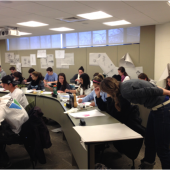
Engaging students not majoring in science, sustainability or environmental studies in learning environmental literacy and shifting their attitudes and behavior toward nature often requires a multi-perspective approach and presents unique challenges. We sought to: (1) pair artistic perspectives with botanical concepts to educate and interest our students in learning environmental literacy, (2) engage our students in careful observation and visualization of nature, and (3) increase the environmental sensitivity of our students by connecting botany with nature based art. To do this we designed a pre-class assignment, an in-class botanical art workshop, and a written reflection assignment that asked students to view, conceptualize, and create works of botanical art as a multi-perspectival process of engaging with relevant scientific processes and environmental concerns connected to botany. Here we provide a justification for the value of bridging science with art, detail our approach, describe student survey responses and thoughtful written reflections, and illustrate lessons learned and future plans.
Continue Reading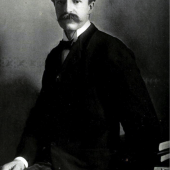
Some scholars of leadership for sustainability argue that more research needs to be done on the ‘who’ of leaders, the core drivers of the ‘what’ and ‘how’ of their decisions and actions. This paper looks at a leading US figure in sustainability, Gifford Pinchot, who led the establishment of the US Forest Service, and who devoted much of his career to conserving the natural world for the good of his fellow citizens. It describes the formation of the ‘who’ of Pinchot as an adult leader through a focus on his early learning environment in order to point to some essential and timeless principles for the education of leaders of sustainability.
Continue ReadingHuman beings today are living in times of unprecedented social and ecological crisis, a crisis that is to a significant degree of human making. The impending arrival of the Anthropocene geological epoch gives this crisis a name. As academics with a sense of responsibility for our relationships with planetary kin, the awareness of unfolding crisis calls on us to reach a deeper understanding of assumptions about the world, and of modes of living that these assumptions permit, which have been a human contribution to crisis. Furthermore, the Anthropocene calls us to act upon our new understanding. Taking modern European imperialism as a key generative force in the development of Anthropocene, we provocatively develop the idea in this article that the life-ways and worldviews of Indigenous Peoples colonized by European imperialism – including, potentially, marginalized and suppressed life-ways and worldviews of Indigenous Europeans – may hold critical insights by which to negotiate the Anthropocene and to challenge and change habits of thought and action that have led us to its threshold.
In doing so we outline the rationale behind the Alliance for Intergenerational Resilience (AIR) whose objective is to build social-ecological resilience by connecting and supporting locally based projects for the innovative and renovative co-evolution of social and ecological systems. AIR aims to generate inter-cultural relationships between Indigenous communities and communities no longer considered indigenous to place in order to support more meaningful, life-giving social and ecological relationships for all people. In order to further describe AIR’s objectives and its aspirations, the article draws on the Alliance’s inaugural event, the Elders’ Voices Summit, four days of Indigenous-led sustainability education with more than 100 international participants, representing community, university, government, philanthropy and not-for-profit sectors. We conclude by casting our hopes forward to envisage future re-indigenization work that supports the connection and reconnection of human beings with the Earth and the places of the Earth to which we belong.
Continue Reading
This article focuses on ‘Hope and a Hike’ a women’s walking group in Ann Arbor, Michigan. The group uses an online Meetup to bring women together for weekly one-hour hikes which include information about a local positive conservation initiative (the hope component). It combines exercise, health gains, and social opportunity, with knowledge, positive local conservation success stories and experience in forested areas. The goal is to awaken a connection to the natural environment with hope and a desire to care and take action for the environment. Participants are women, mostly ages 35-70. This case example includes how the group relates to research on: benefits of walking in nature, awe, women, hope, connection to nature, pro-environmental actions and relational activism. Details about hope topics and ideas for expanding the hikes could be used in informal education as well as in course development.
Continue Reading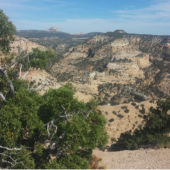
Climate change is a difficult subject to teach because it requires complex scientific understandings and is connected to personal beliefs (Spence, Poortinga & Pidgeon, 2012). It is important to teach students the science of climate change and impact their personal beliefs to produce behavior that will mitigate climate change. In this study pre and post surveys focusing on climate change understanding, belief, and behavior were administered. Interviews were also conducted. The quantitative and qualitative data were conflicting, but through triangulated data analysis learning design elements promoting Climate Change Literacy in higher education were identified. A conceptual model was developed with the learning design elements to improve the teaching of Climate Change Literacy. Findings depicted three design elements that increase students’ Climate Change Literacy: 1) Decreasing students’ psychological distance from climate change, 2) Utilizing students’ sense of place, and 3) Student investigation of their own research questions. Increasing students’ Climate Change Literacy is the critical first step in making sustainable societal transformations required for mitigating climate change, our most pressing environmental issue that impacts all people and the natural environment (Spence, Poortinga, & Pidgeon, 2012).
Continue Reading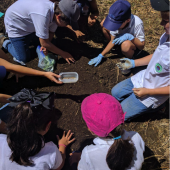
This article describes a sustainable agriculture workshop designed and led by Master’s students to support university-community engagement in Costa Rica. Our project had three transformative goals: 1) to empower Master’s students as educators, 2) to share food security knowledge with community youth, and 3) to strengthen our university-community relationships for knowledge dissemination. For other scholars who wish to apply principles from our Master’s student-led workshop within their local context, we describe our recommendations as well as areas for improvement regarding our three goals. Despite our workshop successes, it was a volunteer project that competed with the academic workloads of the students and the professor. We suggest that community engagement form part of regular academic obligations and courses to increase its accessibility and to provide more opportunities for Master’s students to transition into educators and practitioners before entering their fields of work.
Continue Reading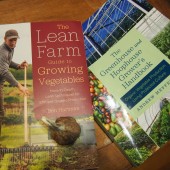
Two books dealing with sustainable agriculture are reviewed as resources for teaching: The Greenhouse and Hoophouse Grower’s Handbook and The Lean Farm Guide to Growing Vegetables. Both fill important gaps in the field.
Continue ReadingABSTRACT: Sustainability and sustainable development have become one of the dominant topics of discussion among individuals, institutions, companies and universities in response to any global issues with regard to climate change. Many universities including Universiti Sains Malaysia (USM) have taken the initiative to instil sustainability element in its programme offered to its prospective student. USM aims to pioneer in sustainability area and become the reference point with regard to sustainability in Malaysia. In this paper, we provide the background of our USM and its goals towards becoming the sustainability-led university in Malaysia. We also introduce the tool that we have developed to help in calculating the percentage of sustainability content in any document. We utilize the tool to help us in investigating whether sustainability element is fully instilled in Mathematics programme offered in School of Mathematics in USM. We also provide our recommendation and future works to further strengthen this study in the future.
Continue ReadingAbstract: India has compulsory teaching and learning of Environmental Education at all levels of formal education. This was mandated through a Supreme Court directive. This study was conducted using a survey instrument that was used as a proxy of sustainability literacy. The instrument had open-ended questions to gauge the respondent’s perspectives, close ended knowledge-based questions, statements to understand attitudes and their awareness of eco-labelling/certification. The target group of study was the entire batch of 90 students (15 Female and 75 Male) that had joined the postgraduate programme in 2014. The students came with about of year of work experience. The major background was engineering and science with only eight percent with commerce background. All were found to be high achievers in their previous education in school and graduation.
Content analysis of the open ended question showed that 24 percent of the students agreed that economic development at the cost of environment is a short term solution, followed by 16 percent each saying that there is a need to have a balance or economic development should be at the least environmental cost. About seven percent said that economic profit can improve the environment and there is no option left if we need economic development. Only six percent putting comfort over the environment. Although the attitude was very positive, about 62 percent of the students were not able to articulate the difference between the quality of life and standard of living. 75 percent of the respondents supported the compulsory CSR act. 71 percent were in favour of extended producer responsibility. There seems to be a limited understanding of sustainable development and equates it to environmental conservation as any lay person who is informed by mass media. 72 percent did not understand the term Green Washing. The awareness was found to be moderate. Profit maximisation was the understanding as the goal of a business. Nearly half of them were of the opinion that consumers will not pay for environmentally friendly products. Although a high of 89 percent said that eco-labelling has an influence on consumer behaviour, very few of them were aware of eco-labels. Almost all agreed that polluters should pay 67 percent of them also believe that environmental clearances are an impediment to economic growth and 64 percent believe that privatisation leads to better utilisation of resources.
The study shows a pro environment attitude but at the same time a limited understanding of the depth of issues and only the economic centric perspective of sustainable development. Only 16 percent gave some hint of social dimension to sustainable development. Awareness of HDI and GDP was high but connection to quality of life was missing. The environment was high on priority as 24 percent of the students agreed that economic development at the cost of environment is a short term solution, followed by 16 percent each saying that there is a need to have a balance or economic development should be at the least environmental cost. There seems to be a limited understanding of sustainable development and equates it to environmental conservation as any lay person who is informed by mass media.
Also it was found that students were influenced by common business perspective being projected in Indian media. Business is becoming a major driver of sustainable development with increasing production and consumption along with population as a major reason for environmental degradation. It is recommended that social and environment be part of ethical framework of business education. It would be useful if details sustainability literacy assessments are done to inform the business management curriculum for the need to include environmental /sustainability management. The impact of undergraduate discipline was found to influence awareness and perception and hence it is important that the management curriculum removes the gap in sustainability literacy amongst students.
Abstract: Using a mixed methodology, we followed the preparation of fifteen teacher candidates through a summer content immersion and schoolyard ecology field experience as part of their alternative route to teacher certification program. The primary purpose of our summer project was to support and learn from the funds of knowledge of the teacher candidates and migrant youth. Next we sought to determine if a learner-centered teaching, modeled in a content immersion that explored the inner life of cells, could be applied heuristically to co-plan and teach schoolyard ecology. The results suggest that a learner-centered teaching translates well between content and field immersions and can positively support the cultural and community wealth of both candidates and migrant youth while affirming and deepening our appreciation of the local natural world.
Continue ReadingAbstract: The concept of a Green School is contested, negotiable, and complex, and this study considers stakeholders’ perspectives of this concept. A total of 21 stakeholders (principals, teachers, and parents) from three award-winning green preschools in three different societies were interviewed to discern their understanding of the notion of “green school”. The award-winning green schools were located in Bali (a developing region in Indonesia, a developing Eastern country), in Berkeley (a developed city in the United States, a developed Western country), and in Hong Kong (a developed city in a China, that that acts as a meeting point of East and West). They were selected as they are considered to be the pioneers in this field in their respected regions. Semi-structured interviews were conducted with principals, teachers, and parents at the sites over a 10-month-period. Three concepts related to the Green School, namely Green Education, Green School, and Green Building, were explored. The stakeholders were asked about their preferences in relation to having children educated inside a Green Building or receiving education utilizing a Green Curriculum. Results indicated that stakeholders’ perceptions about the Green School concept were inconsistent. However, they were aligned with the ‘green’ message that each school tries to convey. Stakeholders, regardless of their cultures, agreed consistently that they preferred preschools implement a Green Curriculum over occupying a Green Building. Implications and future directions for research on Green Schools are discussed.
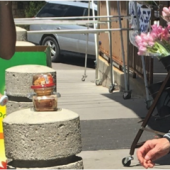
Abstract: Five years after the City of Aspen Waste Ordinance went into effect, this study examines its effectiveness and current shopper behavior. The ordinance banned single use plastic bags from supermarkets and placed a $0.20 fee on single use paper bags. The policy was supported by outreach measures such as distributing reusable bags and education. Results show that single use paper bag sales per $100 of supermarket revenue ranged from a low of 0.59 bags/$100 revenue in 2012 to high of 0.78 bags/$100 revenue in 2014. This rate remained relatively constant between 2014-2016. These low values, combined with the observation that only 15% of shoppers leaving supermarkets were observed using single use bags, indicates that a substantial number of customers choose reusable bags or no bags at all. In contrast, observations made at a nearby supermarket with no bag policy in place indicated that 77% of shoppers left with single use bags. Surveys and interviews indicated that while some people initially opposed Aspen’s bag policy, the community has now generally adapted to and accepted it. These results suggest a level of success in using a policy lever, such as Aspen’s Waste Reduction Ordinance, to advance sustainable behavior.
Continue Reading
Abstract: The question is raised about the nature of transformative change with respect to sustainability in higher education. In particular, should this change be reserved for senior administration? Or alternatively, should faculty and staff as the “institutional middle” of higher education be considered as best suited to lead sustainability on campus, and further, in partnership with stakeholders and others with interests in advancing sustainability within wider society. In this respect, Regional Centres of Expertise (RCEs), established by the United Nations’ University (UNU) are considered as a way toward transformational change in higher education by bridging the gap between higher education and multiple stakeholders with interests in sustainability. Complexity theory, and particularly the notion of complex adaptive systems (CAS), is applied toward an understanding of RCEs as a venue for sustainability leadership in higher education.
Continue ReadingThis case study shares a unique educational experience that combined sustainability and design education with international partnerships that sought to investigate and visually analyze relationships between housing design and water infrastructure in both Pittsburgh, PA (USA) and urban centers of Indonesia. This project built upon an existing foundation of international relationships between faculty and institutions within a consortium framework. The project used a pre-course and a faculty-led student trip to establish relationships among faculty and students based in the United States (US) and Indonesia and to determine preliminary shared research goals to be built upon for future research collaborations that can attain a deeper and longer-term relationship. Students who participated in these courses refined their visual communication skills, gained a valuable global perspective on urban water management, were exposed to participatory photography as a research tool, and were strongly affected by their cultural experiences in Indonesia. Peer work between US and Indonesian students provided opportunities for students to exchange ideas and perceptions about the observed environment, which are influenced by their familiarity and unfamiliarity with the setting. The experience of this project can serve as a primer for the sustainability educator who is interested in interdisciplinary and international educational endeavors.
Continue Reading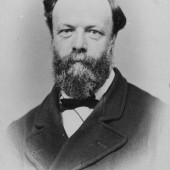
Abstract Innovation for sustainable environments is typically thought of as synonymous with the scientific and the future. This paper argues that historical stories about innovation to create sustainable communities in the past has a contribution to make to research and teaching in the field. It outlines the innovation of forestry in Australia in the nineteenth century, and the thought leadership of the prominent public servant who realized it. It argues that, together with science, students of sustainable environments need to learn to think holistically, framed first by an ethical vision of what a sustainable civil society looks like.
Continue Reading